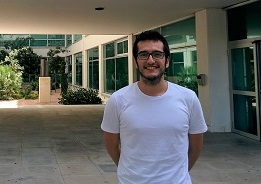
This master’s degree has a theoretical part that we further explain next and a more specific part, divided in seven branches of knowledge that the students must choose according to their vocation.
23 february 2016
The Master’s Degree in Research in Specific Didactics of the Universitat de València consists of a compulsory part with 34 ECTS and an optional part with 14 ECTS. The compulsory part is common for all the students, but they later have to choose the branch of knowledge they want to carry on studying. It has seven options that we explain below.
It is a master’s degree addressed to the teaching body excellence: is not designed for professional purposes but it is oriented for professors that want to investigate on their work. To this master’s degree can also enter active professors, students of Child or Primary Teacher Training and students from other degrees that want to become professors. The Master’s Degree in Research in Specific Didactics of the Universitat de València is linked to the Doctoral Programme in Specific Didactics, since it is designed to research.
The theoretical framework is divided in three parts; compulsory module, optional module and Master’s Degree Final Project. The compulsory module is common for all the students that take this master’s degree and consist of the following subjects:
• Scientific Bases
• Dicactic bases 1 and 2
• Bases for teaching innovation
• Didactic Research Methods
The optional module is divided in seven branches of knowledge:
• Visual Arts
• Experimental Sciences
• Social Sciences
• Physical Education
• Language and Literature
• Mathematics
• Music

These modules have a series of subjects. The objective is to train students in the field of knowledge they want to work in the future or about which they want to investigate. The fact of dividing it in seven options provides to the students of this master’s degree a very wide range of possibilities. Each one of the seven optional branches have expert and internationally renowned professors. Therefore, this master’s degree has a numerous teaching body from different fields of knowledge.
The Master’s Degree Final Project (TFM) consists of 12 ECTS. The TFM consists of a memory or project that is carried out under the supervision of a tutor in which the acquired knowledge and competencies through these studies by the students are manifested.
In conclusion: the theoretical framework of this master’s degree is divided in 34 compulsory ECTS, 14 free-elective ECTS divided in seven fields of knowledge and 12 ECTS for the TFM. You can read the whole theoretical framework here.










